Real-time Monitoring Revolutionizes Mobile Fire Safety Systems
In the digital age, advanced technology like smart sensors has transformed kitchen fire safety in Fa…….
Understanding Kitchen Fire Suppression Installation Fayetteville
Kitchen fire suppression installation in Fayetteville, NC, is a specialized service that involves the design, implementation, and maintenance of fire suppression systems specifically tailored for commercial kitchens. These systems are crucial for safeguarding against fires that can originate from cooking equipment, grease buildup, and other fire hazards commonly found in food preparation areas. The core components typically include fire extinguishers, sprinkler systems, fire suppression agents such as wet chemical agents, and detection systems to quickly identify and respond to potential fire threats.
The concept of fire suppression in commercial kitchens is not new; it has evolved over the years, becoming more sophisticated with advancements in technology. The historical context of kitchen fire suppression installation in Fayetteville dates back to when local regulations began to require such systems for safety and compliance purposes. Today, these installations are a standard part of any commercial kitchen’s safety protocol, reflecting their significance in preventing damage and ensuring the safety of both personnel and property.
Global Impact and Trends
The impact of kitchen fire suppression systems extends beyond Fayetteville, with global trends shaping their use and development. Advancements in technology have led to the adoption of more efficient and environmentally friendly suppression agents. The demand for these systems is driven by a growing number of commercial kitchens worldwide, increasing awareness of fire safety, and stringent regulatory requirements that emphasize the importance of proactive fire protection measures.
Different regions are affected in unique ways due to variations in fire risks, building codes, and cultural attitudes towards fire safety. For instance, countries with high-rise buildings or those with a dense concentration of restaurants may prioritize different types of fire suppression systems than areas with fewer such establishments. The global landscape for kitchen fire suppression installation is one where innovation and compliance intersect, driving the industry forward.
Economic Considerations
From an economic standpoint, the kitchen fire suppression installation market is influenced by factors such as the growth of the foodservice industry, technological advancements, and regulatory changes. Investment patterns reflect a growing expenditure on fire safety infrastructure in commercial kitchens, recognizing the long-term cost savings associated with preventing fires versus the expenses incurred after a fire incident.
The role of kitchen fire suppression installation within economic systems is multifaceted. It encompasses job creation, from the design and installation teams to the ongoing maintenance personnel, and contributes to the overall resilience of the foodservice industry by reducing the risk of costly disruptions due to fires.
Technological Advancements
Technological advancements in kitchen fire suppression systems have been significant, with innovations ranging from smart detection technology that can differentiate between a fire and a false alarm to more eco-friendly extinguishing agents that are safe for both people and the environment. These advancements not only improve the effectiveness of fire suppression but also ensure that they are aligned with modern sustainability practices.
Future potential in this area includes the integration of artificial intelligence (AI) and machine learning to predict and prevent potential fire hazards before they escalate. The development of such technologies promises a more proactive approach to kitchen fire safety, potentially saving lives and property.
Policy and Regulation
The policies and regulations governing kitchen fire suppression installation in Fayetteville are influenced by national standards, such as the National Fire Protection Association (NFPA) codes, and local ordinances that ensure compliance with best practices for fire safety. These frameworks are essential in guiding the design, installation, and maintenance of fire suppression systems in commercial kitchens.
Compliance with these regulations is not only a legal requirement but also a critical aspect of risk management for businesses. Non-compliance can lead to costly fines, insurance issues, and even the closure of establishments. The influence of policy and regulation on the development of kitchen fire suppression installation is a testament to its importance in the broader landscape of fire safety and building code compliance.
Challenges and Criticisms
The challenges faced by kitchen fire suppression installation services include ensuring compatibility with various types of commercial kitchens, keeping up with technological advancements, and adhering to stringent regulatory requirements. Additionally, there is a need for ongoing training and education for both technicians and kitchen staff to effectively operate and maintain these systems.
Criticisms often arise from perceived overregulation, which can be burdensome for small business owners. Another common critique is the potential for false activations, which can disrupt business operations and lead to unnecessary costs. Proposed solutions include better training, more reliable technology, and clearer communication between regulatory bodies and businesses to ensure that systems are both effective and practical.
Case Studies
Several case studies highlight successful applications of kitchen fire suppression installation in Fayetteville. One such example is a local restaurant chain that, after installing a state-of-the-art fire suppression system, avoided a potentially devastating fire incident. This case underscores the importance of investing in quality systems and regular maintenance.
Another case study involves a large-scale catering facility that experienced a fire but was able to contain it quickly due to an effective fire suppression system. This real-world application demonstrates the tangible benefits of being proactive about fire safety.
Conclusion
The role of kitchen fire suppression installation in Fayetteville and beyond is a critical component of fire safety in commercial kitchens. It encompasses not only the technical aspects of system design and implementation but also the economic, regulatory, and social factors that influence its adoption and effectiveness. As technology evolves and regulations change, the industry will continue to adapt, ensuring the highest levels of protection for businesses and their patrons.
For homeowners, it is essential to ensure that your kitchens are equipped with proper fire extinguishers and smoke detectors as a first line of defense against fires. Regular maintenance checks by professionals can help ensure these safety devices are in working order.
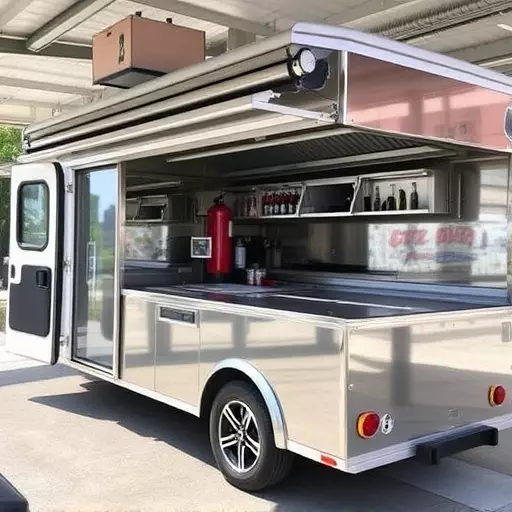
In the digital age, advanced technology like smart sensors has transformed kitchen fire safety in Fa…….
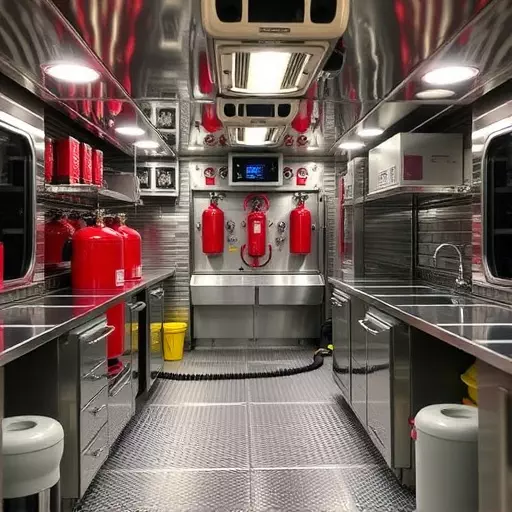
Catering trucks in Fayetteville face unique fire hazards due to their mobile nature and flammable ma…….
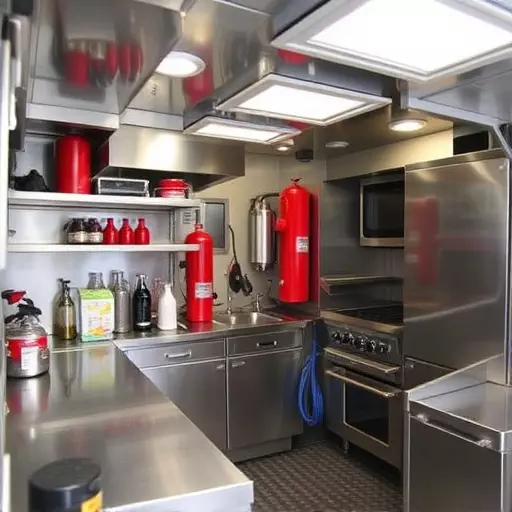
Battery-powered fire suppression activation systems offer a modern, efficient, and accessible soluti…….
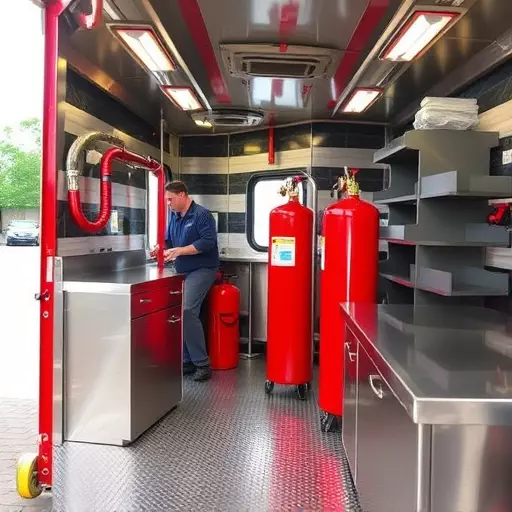
Mobile kitchens in Fayetteville face unique fire hazards due to confined spaces and open-flame cooki…….
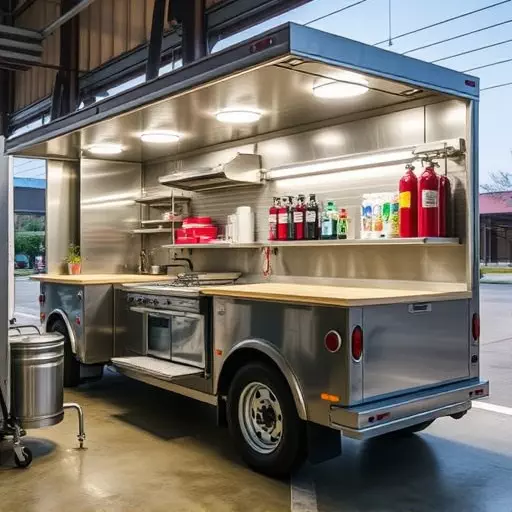
Hybrid trucks and food trucks present unique challenges for emergency response due to their dual-pow…….
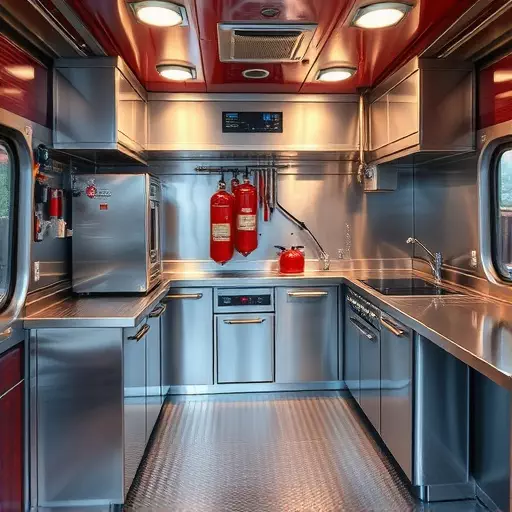
Food service establishments in Fayetteville face elevated fire risks due to cooking appliances, flam…….
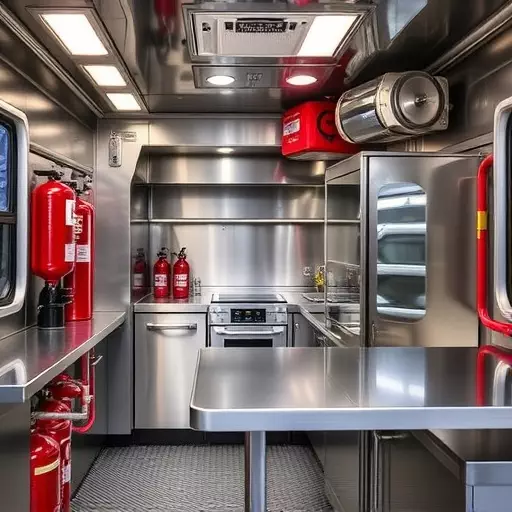
Catering businesses in Fayetteville, GA face unique fire hazards due to open flames and perishable f…….
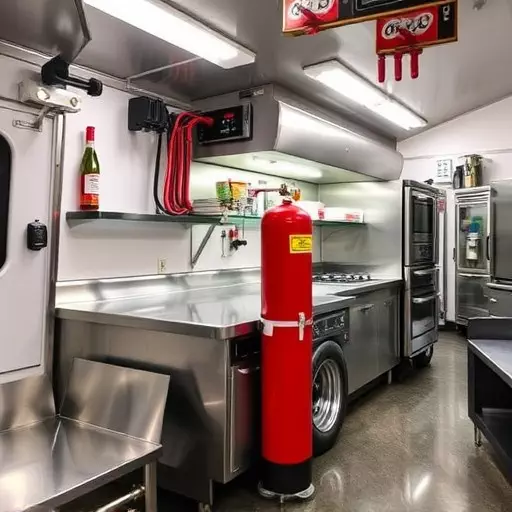
Catering fleets and food trucks in Fayetteville face unique fire safety challenges due to their mobi…….
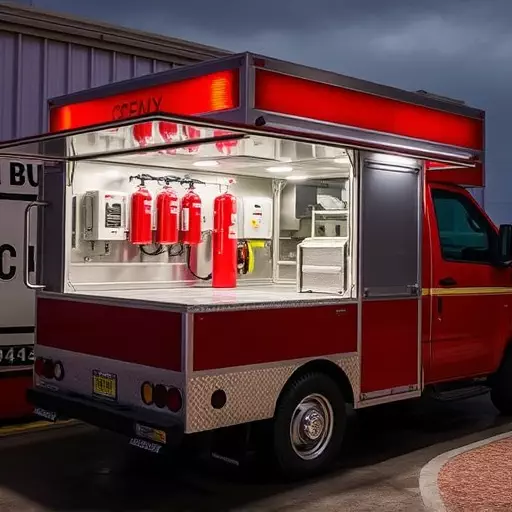
Food trucks in Fayetteville face unique fire safety challenges due to compact kitchens with mixed eq…….
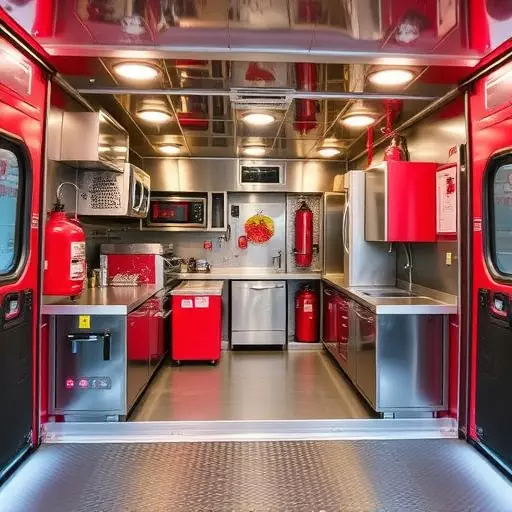
Outdoor kitchens are trending in Fayetteville, but they require specific fire safety measures due to…….